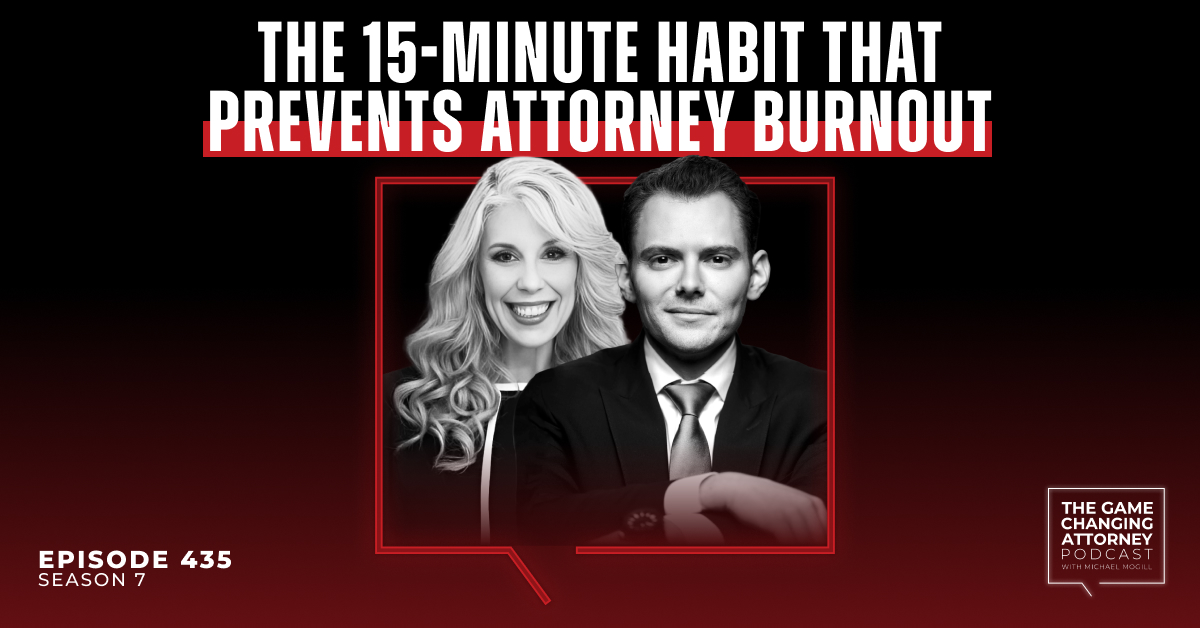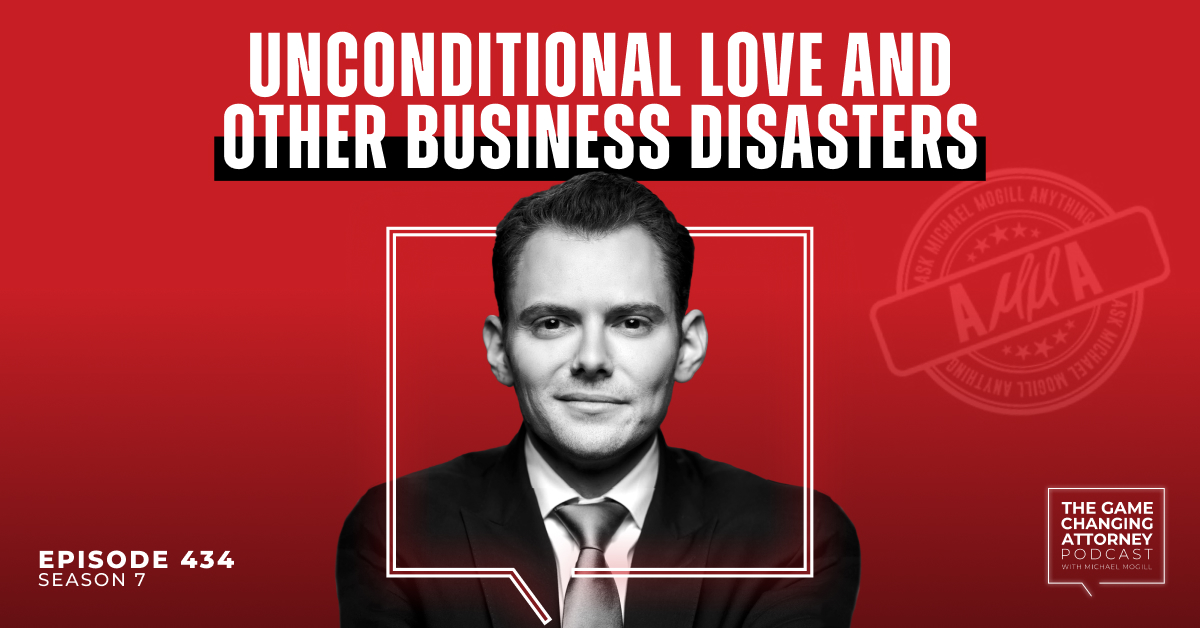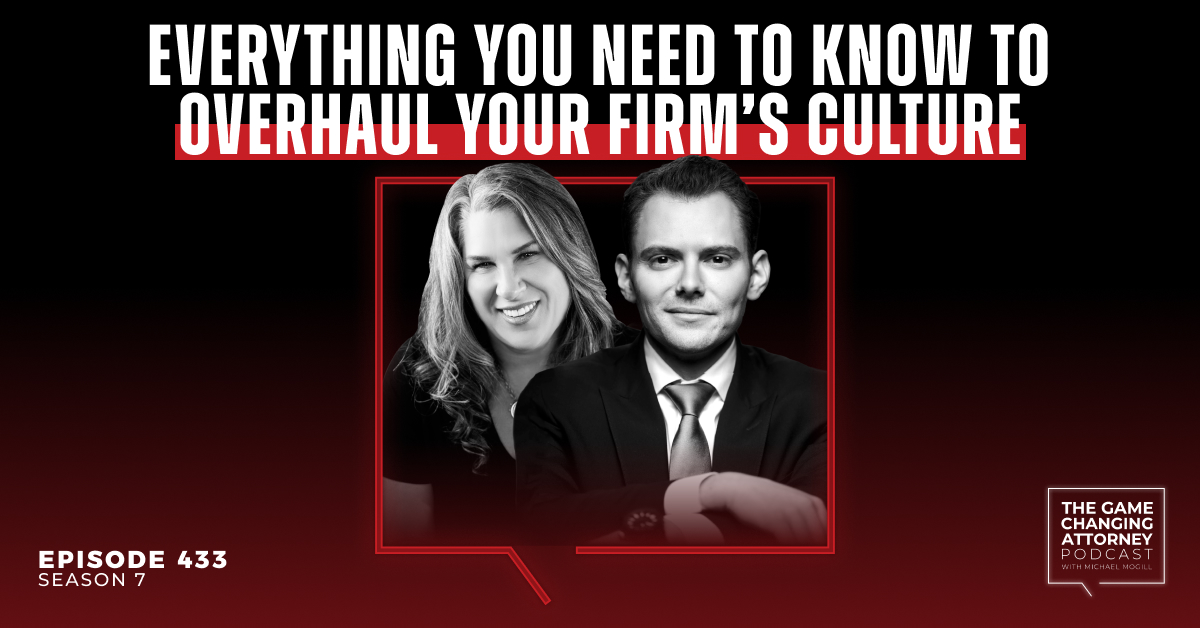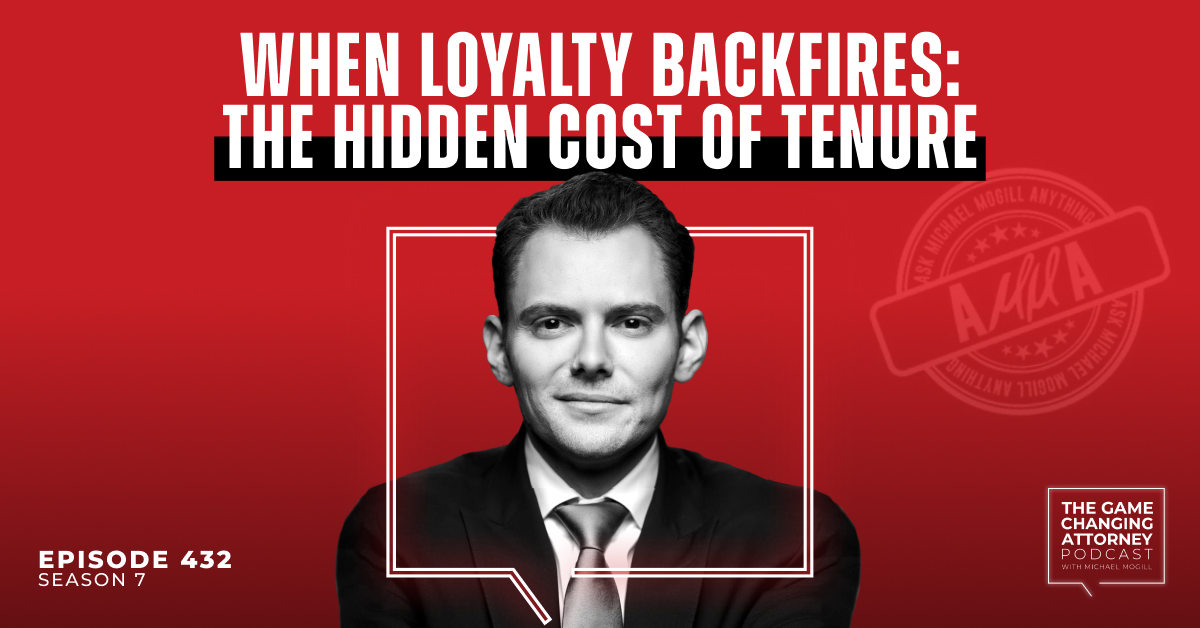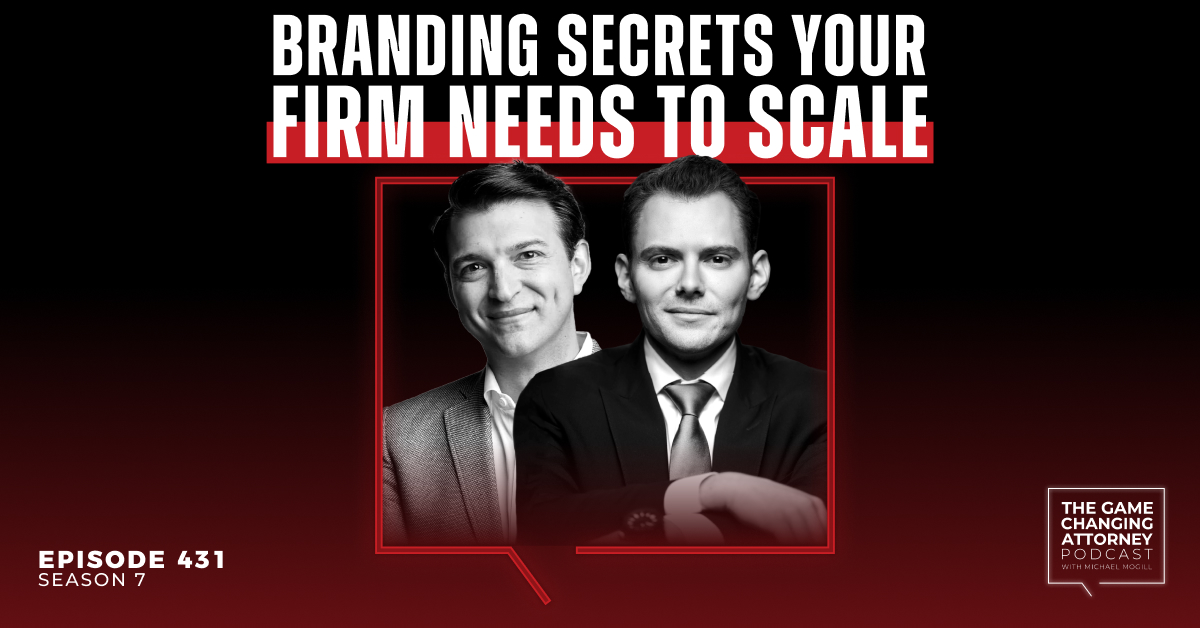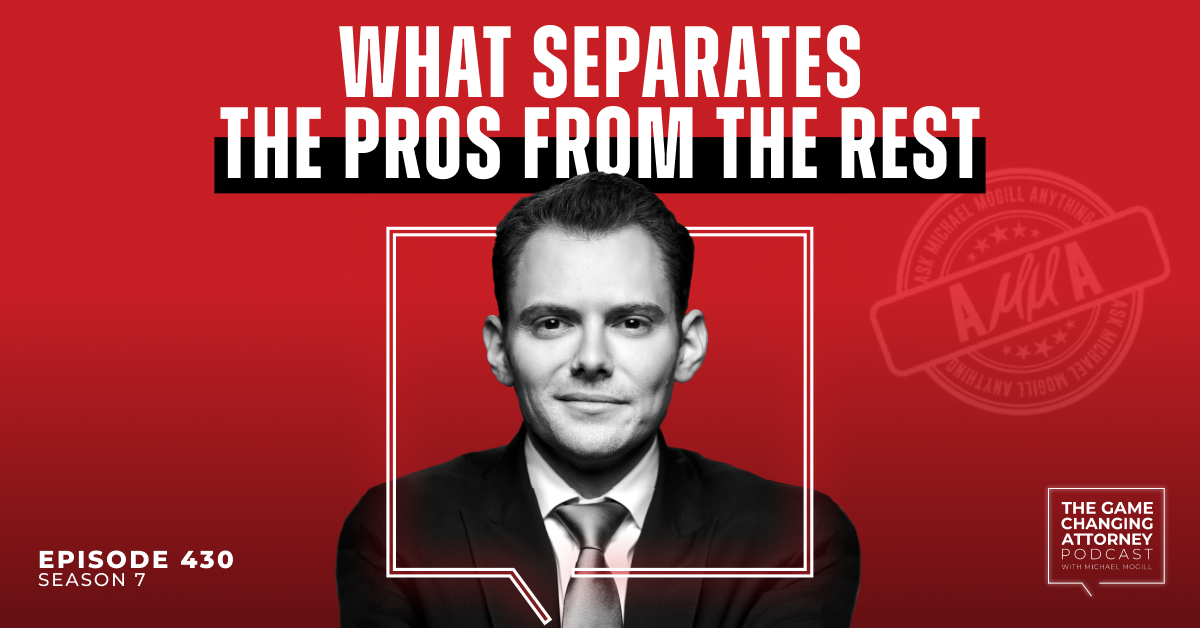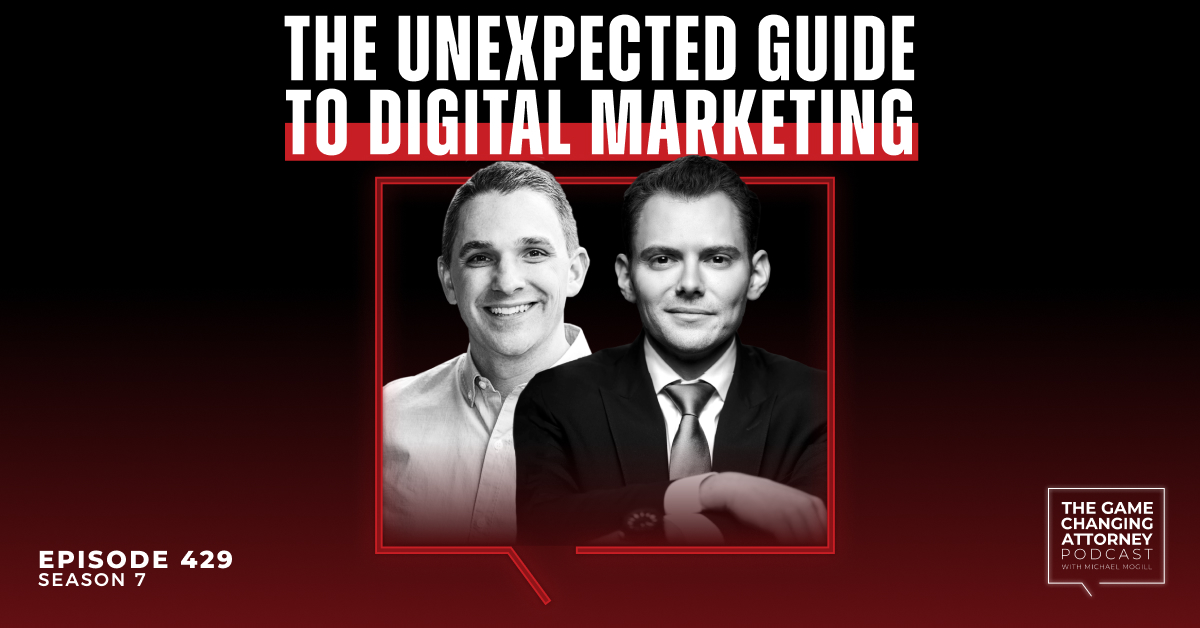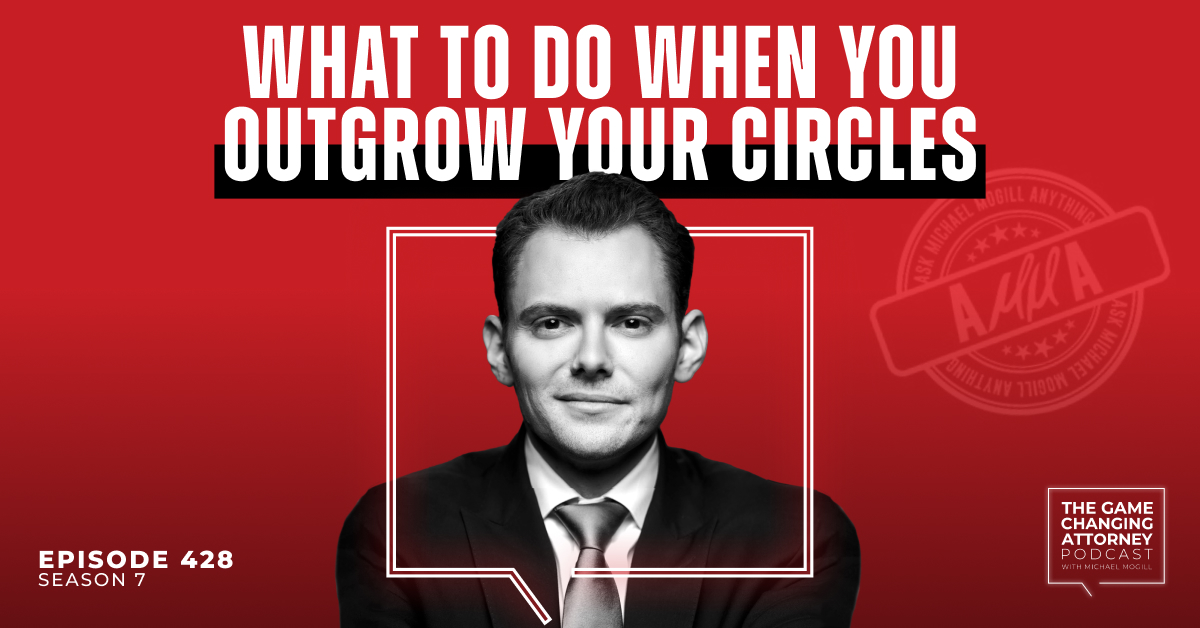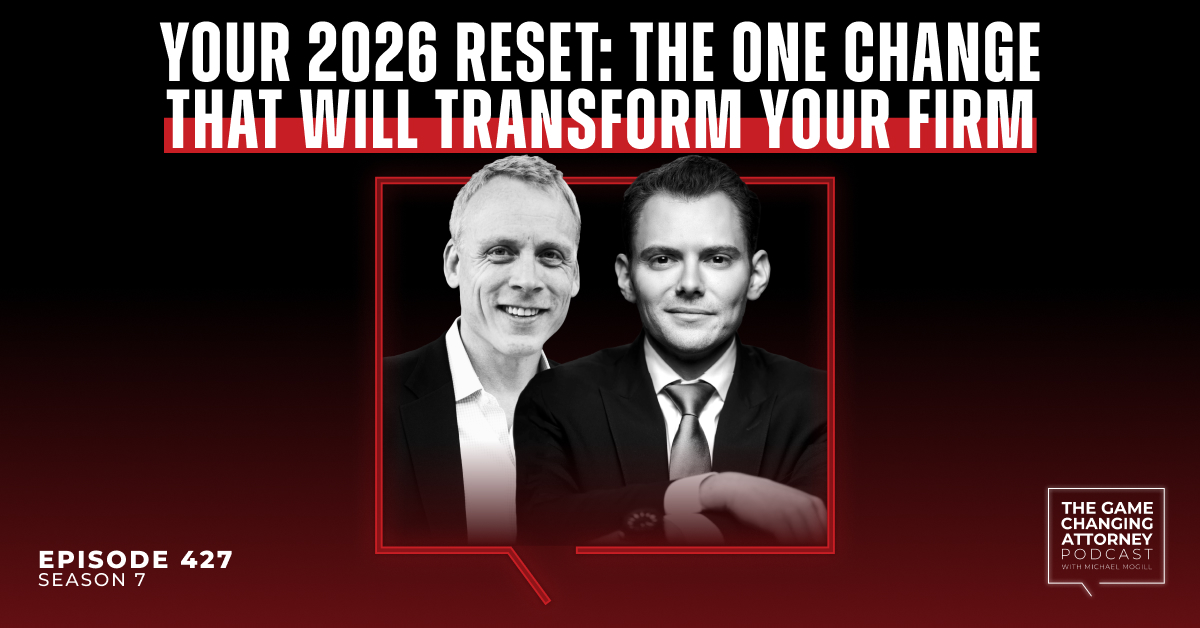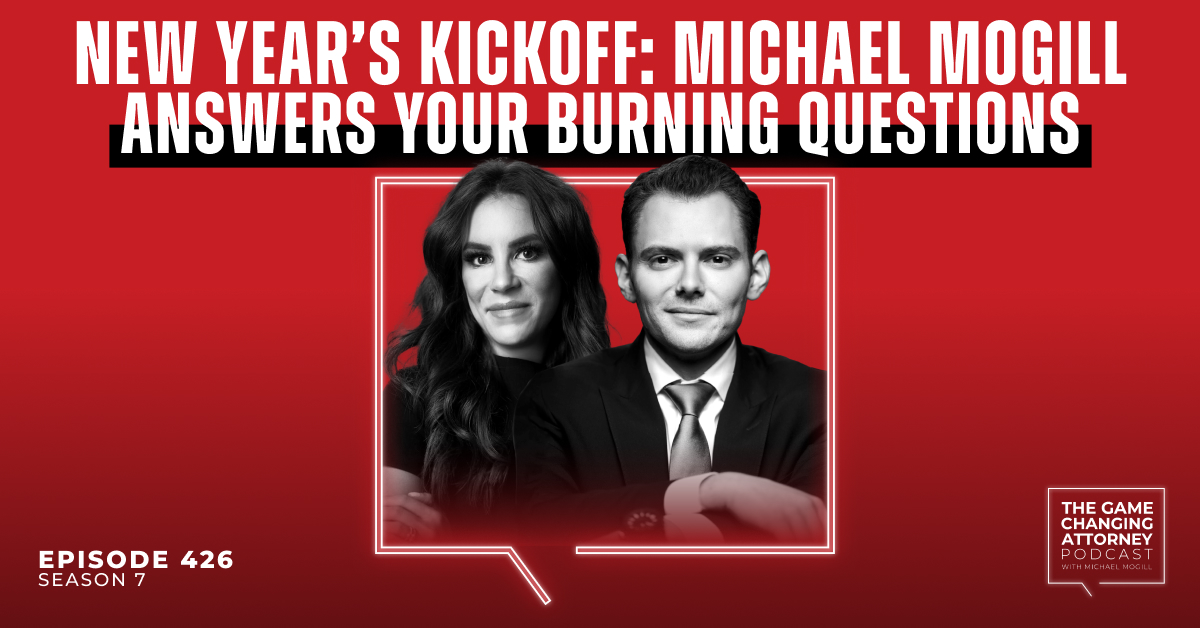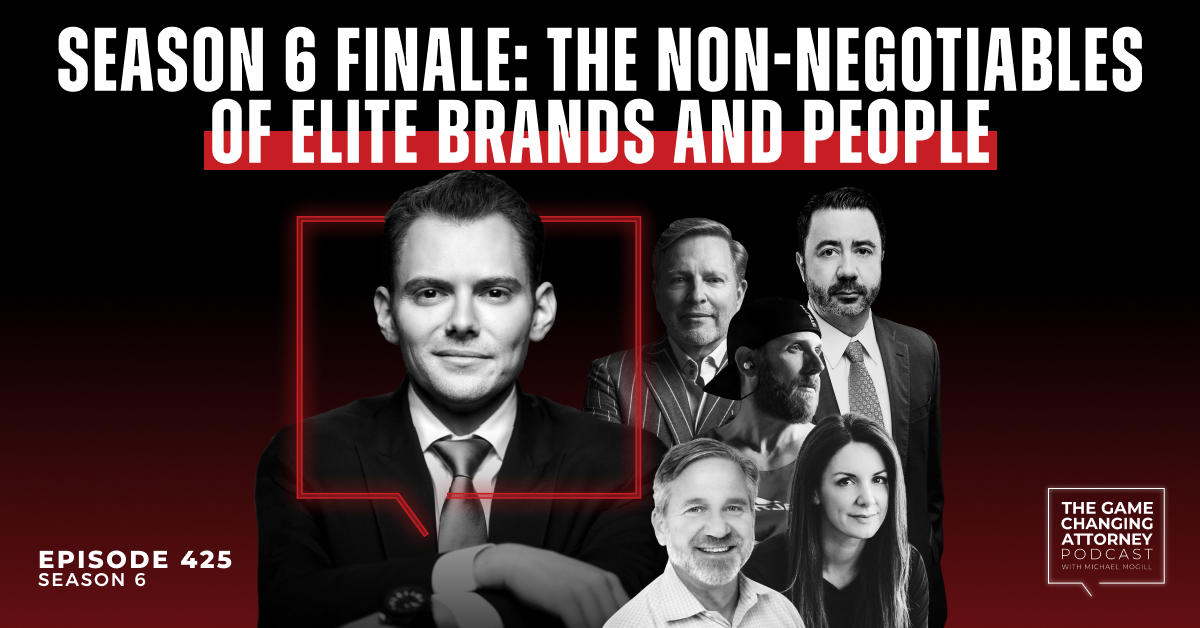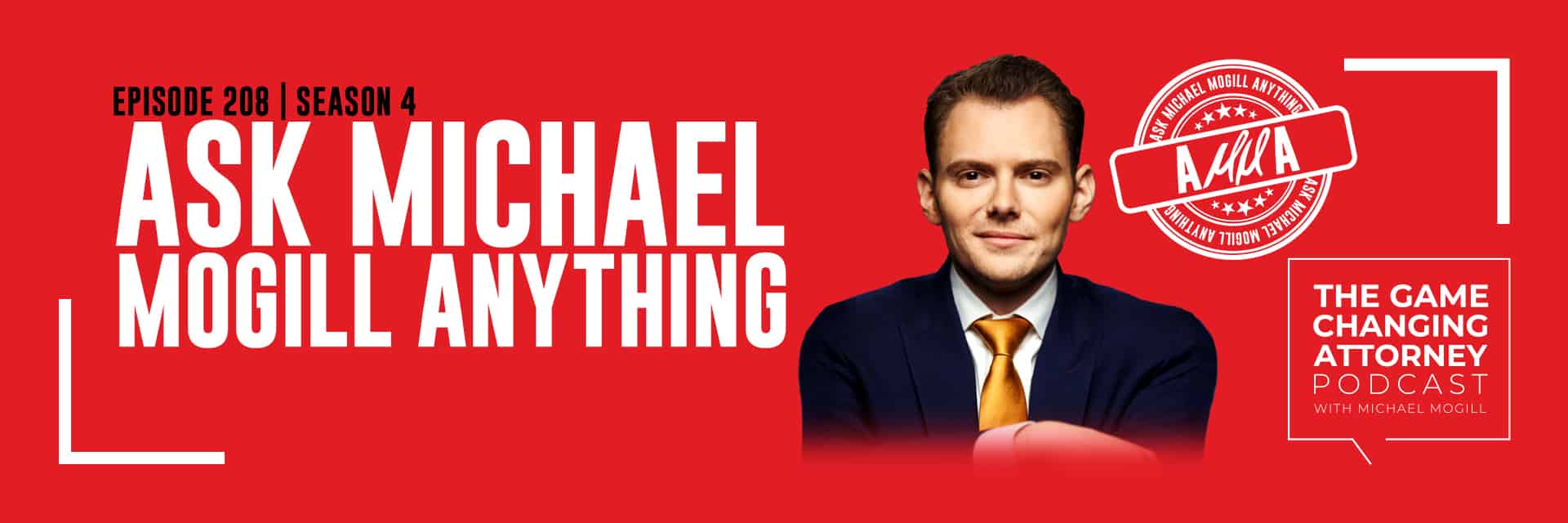
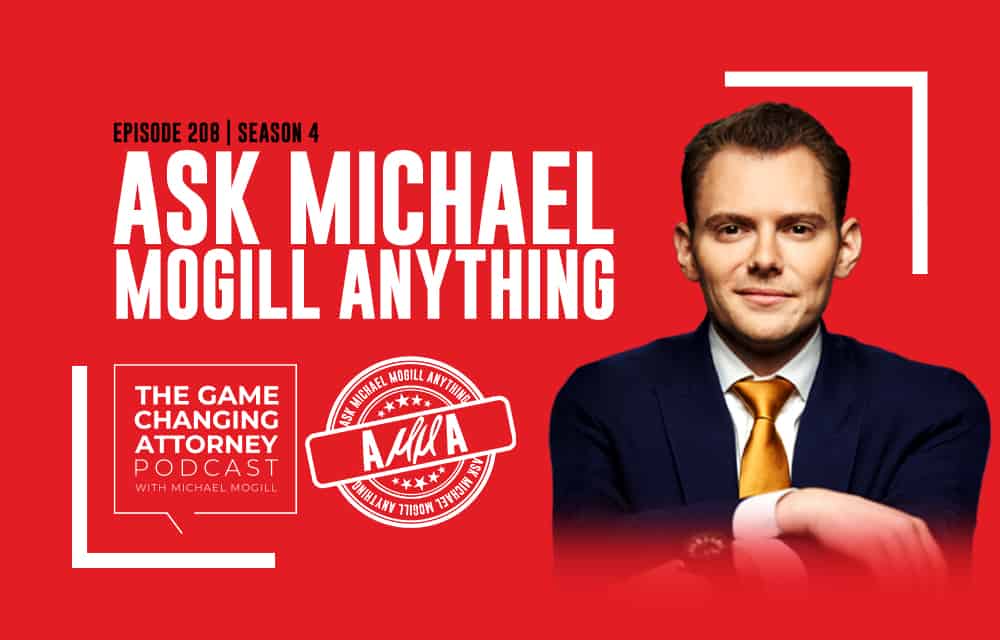
Episode 208 — AMMA — How to Coach Team Members to Greatness
Great leaders not only take risks to get great results, but also coach everyone around them to get great results as well.
Crisp Founder & CEO Michael Mogill learned the hard way — so you can learn these vital management lessons faster.
In this episode of The Game Changing Attorney Podcast, he and Jessica Mogill discuss:
- The pros and cons of being a risk-tolerant leader
- How to help others break cycles of bad decisions
- What to do if your team isn’t listening to your feedback
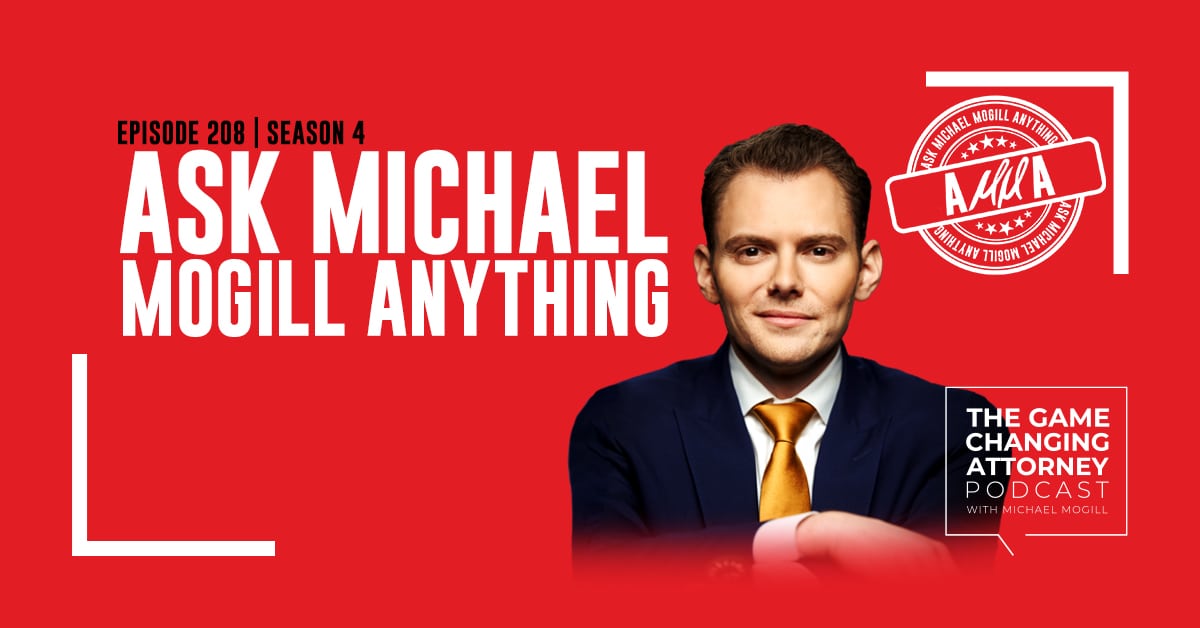
Listen & Subscribe
Show Notes:
Is it better to be risk-tolerant or risk-averse? “I find that generally there are people that want to win big while others want to lose small. You find that those that are risk-tolerant are much more likely to leap at more challenging, larger opportunities, and when they succeed, they look like heroes. Unfortunately, there’s the other side of this that people often don’t talk about is that the ones that tend to be more risk-tolerant and place bigger bets are also the ones that are more likely to lose and lose their ass entirely. So there are merits to both. At the same time, you can argue on the other side of the equation, those that don’t ever make that attempt, that’ll never make that leap, that don’t take on challenging and tough cases, that don’t take on very difficult and large, ambitious problems never had the opportunity to make the climb. They play defense as opposed to offense, trying to minimize risk and only betting on things where they can have extremely high outcomes of succeeding or guaranteed outcomes of succeeding, and thereby limit all of their upside. if you’re one of these people that have this fear of loss, of being wrong, of making mistakes, of trying something and failing, of looking stupid, any of that — well, you’re not going to make a whole lot of progress. You’re probably going to stay in place. You’re not going to grow, you’re not going to develop, and you’re probably not going to make a huge impact.”
Coach people to self-reflect. “At the end of the day, I think people have to come to their own conclusions and make their own decisions over what they feel is best in their life. You can help guide somebody in the right direction. You can encourage them to reflect on their decisions. For example, if they made a mistake — let’s say it’s something in the business, in the law firm — you can sit down with them and have them think through and outline their decision-making process of what led to that decision. They can start to reflect on, ‘Okay, so here was the outcome, but what led to that outcome, and what decisions did I make that created this type of situation? What could I do differently next time?’ You’d really start to dissect the situation and maybe make it more objective than subjective, and then they can look at it and say, ‘Well, I could have made different moves here. I could have made different decisions or different choices.’ And now they have a way of actually reflecting on that situation.”
Some feedback on the way you give feedback. “If you see team members who are not listening to you, the first impulse oftentimes is to think, ‘What is wrong with these people?’ But I think instead, we as leaders need to look inward and say, ‘Well, why are these people not listening to me? Why are they not taking my feedback?’ It could be for a number of reasons. Maybe they don’t trust you. Maybe they don’t believe you have their best interests at heart. Maybe they don’t believe you. I think it’s first dissecting that, especially if you have team members who do listen to you versus other ones who do not. Maybe there’s nothing wrong with them. Maybe there’s some reason that they’re cautious to take feedback from you. A lot of it also comes down to what type of example you are setting for them. I would look inward first as to why they’re not listening to you. Have you demonstrated in the past that you do want to help them and you do want to support them? Without any context as to how this feedback is being delivered, maybe they could see it as just pure criticism as opposed to as a way of you actually being vested in their success and in their growth and development. Maybe you haven’t connected the dots for them in terms of how this feedback that you’re providing.”
Connect with Michael
- Text directly at 404-531-7691

